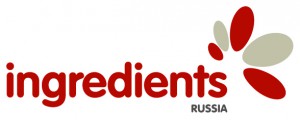The import substitution in Russia is a temporary phenomenon, a temporary tool for adjusting the current situation, President Vladimir Putin said on Wednesday.
“The idea of import substitution itself is not universal and is not what we should strive for in the long run, because import substitution should not undermine competition. This is an extremely important thing,” Putin said at a meeting with women entrepreneurs.
“We should understand, that all this import substitution is a temporary phenomenon. I want you to understand this. This is a temporary tool to adjust to the current situation,” he stressed.
“We should aim at producing such products of such quality and at such a price that it is competitive not on our own, but on the world market,” Putin added.
According to him, import substitution is primarily related to ensuring the security of the country, for example, in the defense industry. As an example Putin mentioned the fact that Russia has begun to produce marine engines, engines for helicopters, and this is being done compulsorily.
“In some cases we did it and are doing it to support the domestic producer in difficult economic conditions, especially in the situation when our partners violate and distort competition by imposing different sanctions, which are politically motivated, as they claim, but in fact are based on the ambition to gain an advantage,” he added.


 Prodexpo
Prodexpo